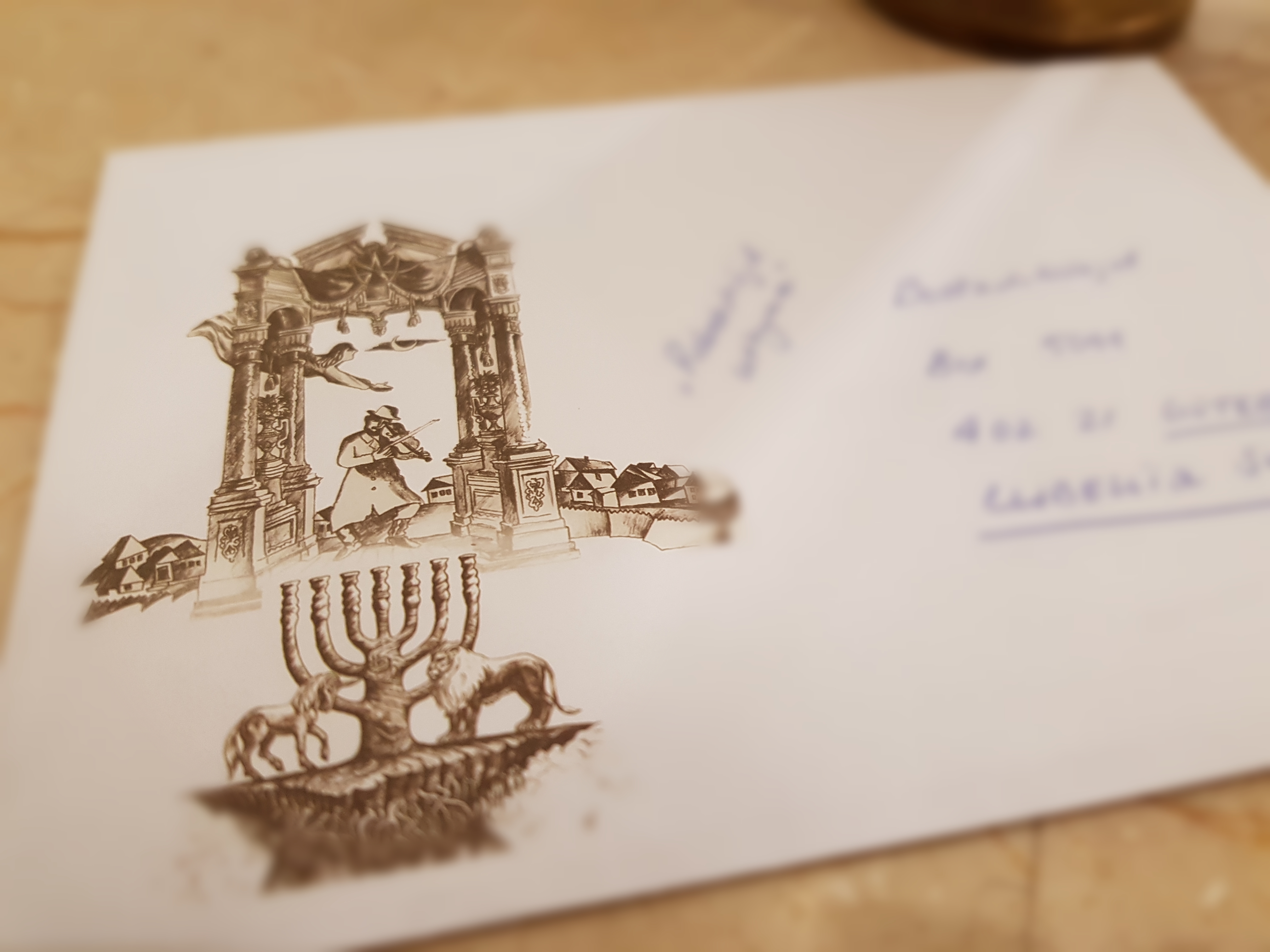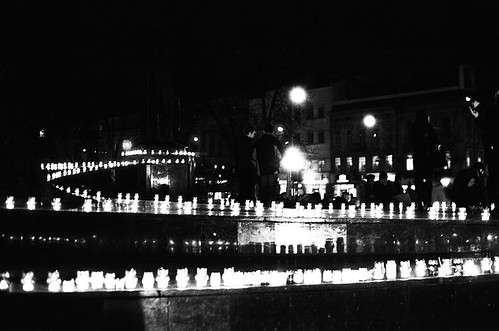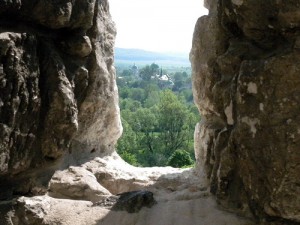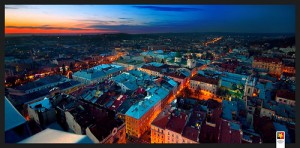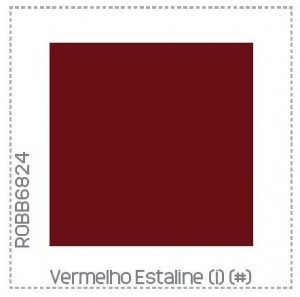Bondsonen från Rusiv
Category: by sophie engström, Centraleuropa, Galizien, Historia, Kåseri, krönika, Litteratur, ukraina
Tags: galizien, Holodomor, Ivan Franko, Kraków, Kretsen kring Lesja Ukrajinka, Lesja Ukrajinka, litteratur, Lviv, Młoda Polska, Polsk-ukrainska inbördeskriget, Ukraina, Ukrainsk-sovjetiska kriget, Ukrainska folkrepubliken, Ukrainska språket, Västukrainska folkrepubliken, Vasyl Stefanyk
På Lubicz, strax intill Krakóws opera, står en äldre villa och åldras med inte riktigt så mycket värdighet som man skulle önska. Putsen har rasat på sina håll, och en vacker dekoration på husets framsida har tyvärr blekts av tidens tand. Men trots det drar villan till sig den förbipasserandes uppmärksamhet. Kanske är det för att dess fysionomi skvallrar om fornstora dagar.
Och mycket riktigt, här går det att finna saker av intresse. På husets ena sida sitter en plakett. Den förkunnar att här bodde minsann den store Vasyl Stefanyk. Ett namn dessvärre okänt för det stora flertalet från våra breddgrader. Men på andra sidan gränsen, alltså i Ukraina, är han en välkänd figur.
Vasyl Stefanyk föddes 1871 i den lilla byn Rusiv, som ligger strax norr om gränsen till Rumänien, och som då låg i Galizien, det Habsburgska rikets periferi. Han kom från en förhållandevis rik bondefamilj. Redan i unga år hade han problem med sin far, så tillvida att de tyvärr aldrig riktigt kom överens. Hans mor var den han tydde sig till, och det var hon som uppmuntrade honom. Som barn fick han tidigt bekanta sig med de ukrainska folksångerna, sagorna och berättelserna som förekom i Pokuttja, alltså de trakter där han växte upp. Sagorna och sångerna var ofta befolkade med mystiska väsen och skeenden, vilket fascinerade den unge Vasyl, och kanske inspirerade en av hans framtida yrkesbanor.
Som sjuåring skickades han till skolan i den större staden Sniatyn, och därefter till Kolomija. I den senare skolan blev han enligt egen utsago utsatt för regelrätt mobbning för sin kortväxthet. Kanske var det då han la grunden till sin avsky mot orättvisor. I gymnasiet träffade han aktivisten, kvinnosakskvinnan och författarinnan Anna Pavlyk, och det var hon som visade honom vägen in till den ukrainskspråkiga litteraturen, samt ukrainarnas kamp för sina rättigheter. I gymnasiet fick han dock inte lära sig något om ukrainsk kultur, enär inte ens språket fanns på schemat. Hans engagemang för den ukrainska frågan ledde dessvärre till att han slutligen relegerades från skolan i Kolomija, och han flyttade till Drohobytj, där han sedermera fick sin gymnasieexamen 1892.
Den som är bevandrad i Galiziens geografi, tror nog att han nu begav sig till Lviv (då Lemberg) för att studera. Men så var inte fallet. Vasyl Stefanyk flyttade till Kraków, och skrev in sig på den medicinska fakulteten på Jagiellonska universitetet. Det skulle dock visa sig att Vasyl inte föredrog att bota människors fysiska tillkortakommanden, ety han istället började fördjupa sig i polsk litteratur och kultur. Han blev ett välkänt namn i de konstnärliga och litterära sällskapen, och han blev också nära vän med flera inom Unga Polen (Młoda Polska). Det var också här i Kraków som han inledde sina första trevande försök som författare. Under några intensiva år efter sin tid i Kraków, skrev han de verk som han idag är ihågkommen för.
Väl hemkommen till sina hemtrakter hade han ständigt återkommande gräl med sin far, som vägrade stödja sonens författarambitioner. Mitt i all bedrövelse gick hans mor bort och Vasyl drabbades av en djup depression. Poeten Lesja Ukrajinka, som mötte honom i Tjernivtsi 1901, noterade hans nedstämdhet, samt hans tilltagande skrivkramp och överdrivna självkritik. Men redan tre år senare lyste lyckan mot honom igen, då han gifte sig med sin stora kärlek, Olha Hamorak. Bröllopet stod i Lviv, på hotell Wanda, och bland gästerna återfanns den store författaren och frihetskämpen Ivan Franko.
Det var just under denna tid, vid sekelskiftet 1900, som han stod på höjden av sin litterära karriär. Efter 1905 skulle det dröja ända till 1916 innan han publicerade nya verk. Vasyl Stefanyk var nämligen lika mycket politiker och frihetskämpe som han var författare. 1908 valdes han således in i det Habsburgska rikets parlamentet. Där satt han ända till hela det stora imperiet slets sönder av inbördes splittring och yttre angrepp. Under den mycket korta tiden för Västukrainska folkrepublikens existens (1918-19) var han vicepresident, och i den Ukrainska folkrepubliken (1918-21) hade han en uppburen ställning. När så det första självständiga Ukraina besegrades av polska och sovjetiska styrkor, införlivades de västra delarna i Polen, emedan de östra delarna blev inlemmade i Sovjetunionen. Vasyl Stefanyk hamnade följdaktligen i den sistnämnda. Han utnämndes bland annat till västra Ukrainas viktigaste författare av sovjeterna, men Vasyl Stefanyk vägrade ta emot utmärkelsen och prispengarna i protest mot den orkestrerade svältkatastrofen Holodomor, som 1932-33 drabbade bönderna i östra Ukraina. Tre år senare, år 1936, gick Vasyl ur tiden på samma plats som han föddes. Därmed hade han slutit cirkeln.
Vasyl Stefanyks författarskap består främst av noveller, några av dem bara någon sida lång. Han skrev (minst) 59 stycken noveller och oräkneligt antal dikter. Hans författargärning kretsade kring de ukrainska böndernas svåra liv och deras ofta utsatta situation. Hans hjältar brottas med både stora och små livsfrågor, och vi får följa dem genom att ta del av deras inre röster. Det var inte ovanligt att Vasyl Stefanyk använde dialektala uttryck, vilket inbegriper en del besvär för de översättare som ger sig i kast med hans litterära alster. Bland hans mest betydande verk återfinns Den blå boken (Синя книжечка) (1899), och åren därpå kom Stenkorset (Камінний Хрест) (1900), Vägen (Дорога) (1901) samt Mitt ord (Моє слово) (1905).
Den stora villan på Lubicz, där Vasyl Stefanyk bodde under sin tid i Kraków, tittar dystert ut på den trafikerade vägen. På hans tid var den säkerligen också trafikerad, men då låg villan i stadens utkant, och vi kan anta att här ändå rådde en lantlig atmosfär. Något som nog passade bondsonen från Rusiv.
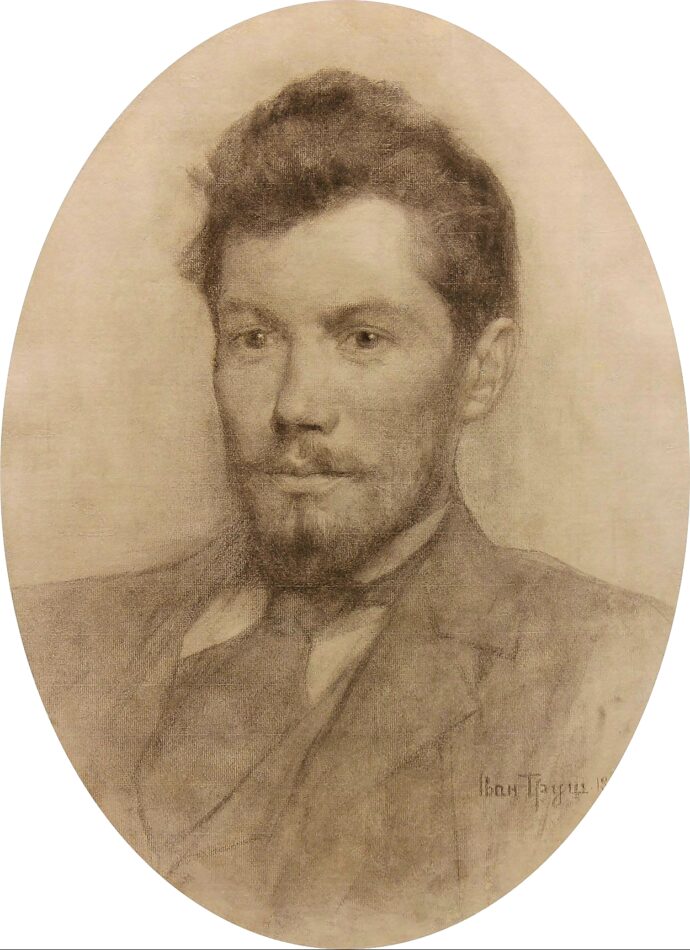
Vasyl Stefanyk porträtterad av Ivan Trush, 1896.
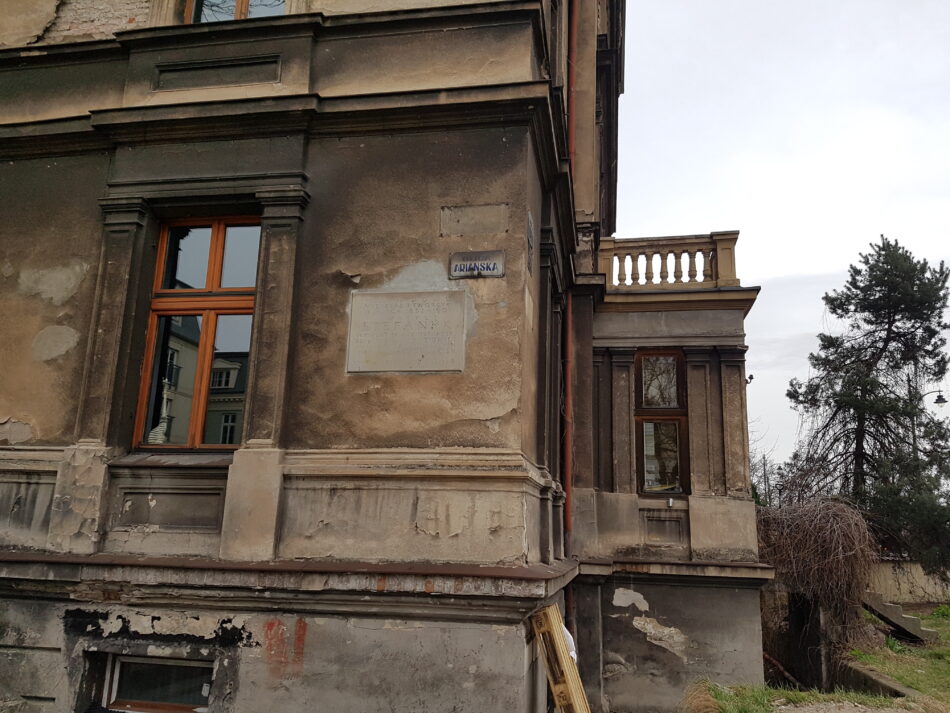
Vasyl Stefanyks bostad i Kraków.


